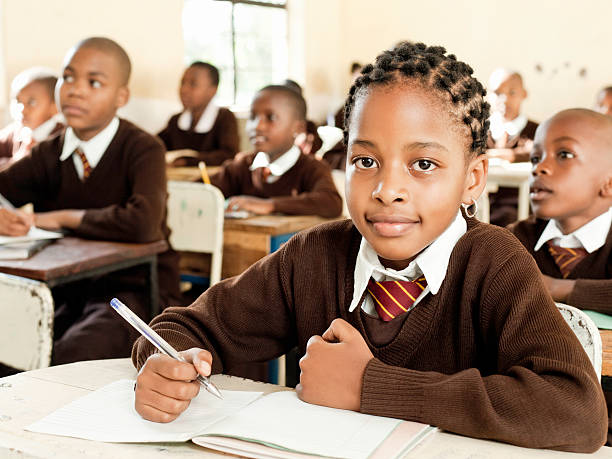This article was published in The Citizen Newspaper, Tanzania on 24th October, 2023.
Education plays a crucial role in the smooth functioning of society. Here ‘education’ is used generically, referring to all kinds and manners of passing on knowledge and know-how across to people and generations.
Education is liberation.
Peter Brougham, a Scottish statesman of the 18th century is quoted to have said, “Education makes people easy to lead but difficult to drive; easy to govern, but impossible to enslave.” Promoting literacy is for the same goal: building foundations for people, first to be free, and in their freedom, to be productive, progressive, and self-sustaining.
UNESCO’s resources affirm the same; “Literacy empowers and liberates people. Beyond its importance as part of the right to education, literacy improved lives by expanding capabilities which in turn reduce poverty, increase participation in the labour market, and have positive effects on health and sustainable development.”
The target of literacy promotion initiatives is the actualization of the 4th Sustainable Development Goal, which is to “Ensure inclusive and equitable education and promote lifelong learning opportunities for all.”
When people are literate and rightly educated, the society is assured of its sustainability. In its integral sense, when uncorrupted, education imparts the fundamental societal values of justice, dignity, mutual acceptance and inclusion which are indispensable for peaceful living.

Literacy should be understood beyond the basic abilities to read, write, and count (numeracy).
According to the UNESCO Institute for Statistics, there are at least 763 million adults around the world who cannot read and write and over 250 million children who have not been able to acquire these basic literacy skills.
For Tanzania, according to the National Panel Survey (NPS) data of 2021, 24 per cent of Tanzanians then lacked these basic skills or literacy and numeracy. Currently, more than 80 per cent of the Tanzanian adult population is literate.
Literacy of a particular time has to help solve the problems of its time. We cannot skip this step. People have to be helped to get there, especially in rural areas.
Though people may be illiterate and still able to understand how, for example, technology works, they can hardly make the most of the available resources because of having limitations in multiple literacies. To expand on learning we need tools (literacies) to make the most of the available advancements. Otherwise, our participation in the society will remain the same.
Practical approach
While there is a lot of progress in our country, there is still room for adjustment. Considering the number of graduates our universities produce each year, if our education was applicable we would be far ahead of where we are at the moment.
It appears that our literacy (in its most comprehensive inclusive form) largely does not expand in people the capabilities to reduce poverty. Our universities produce thousands of people who are unfit for the competitive labour market, both locally and internationally, and most of whom are incapable of self-starting.
We cannot sit back quietly. The labour market is in a way a reflection of what works in our society. If graduates have ‘nothing to offer’ from their three or four years of intensive learning in our universities there is a serious problem. Apart from students being lazy, or less creative, some things need to be worked upon by those responsible for our education.
While we boast of progressing in literal literacy, reading and writing, we need more strategic action to make the knowledge built on those basic skills relevant to our people, otherwise, it is a struggle for nothing. Basic literacy today has slowly moved from reading and writing.
Education has to meet the demands of global citizenship and the modern interconnected world by producing people with the needed technical skills for decent work (Ref. Global Campaign for Education: SDG4). We need to look beyond menial jobs, traditional small-scale farming, etc. and target decent work. That’s the global competition focus.
‘Decent work’ according to the International Labour Organization (ILO) is “a work that is productive and delivers a fair income, security in the workplace and social protection for all, better prospects for personal development and social integration, freedom for people to express their concerns, organize and participate in the decisions that affect their lives and equality of opportunity and treatment for all men and women.”
This is where we want to reach as a country, a stage where education reinforces human dignity and life security, and is liberating and empowering through decent work. When people are liberated from chains of poverty there are chances of peaceful coexistence as the struggle for life necessities will be minimized.

Local relevance
Some questions we can ask: Is our literacy timely? Does it correspond with the limited definition of ‘reading and writing’ or the modern definition of continuous complex and up-to-date education for acquiring relevant sustainable development skills?
Our education, in my opinion, is gradually becoming something young people are made to just cruise through. Many go without any plans; they study whatever they are advised to, and make minimum grades.
With proper screening and career guidance at early ages, these young people could be usefully invested in things they have an inclination to, and which are functionally relevant to our society. They will then be guided to maximize their passions through relevant literacies.
What defies logic is that there are problems around us that do not require so much knowledge, yet are never addressed by the ‘educated.’ The education system, being the biggest hub of literacy in the country, should equip people with practical knowledge which addresses situations and provides solutions right here in our context. We do not need estranged literacy which is foreign to our needs, problems, and possibilities of progress.
